Talking to VietNamNet about the great significance of the success of the August Revolution and National Day September 2, Professor, Doctor of Science Vu Minh Giang, Vice President of the Vietnam Historical Science Association said:
Our nation has a thousand years of civilization, is indomitable and does not bow down to powerful and brutal invaders, and is resilient in facing dangerous challenges, so independence and freedom are always sacred values and for every Vietnamese person, "Nothing is more precious than independence and freedom" is a truth. Having to live in misery for nearly a century under colonial rule is unacceptable. Many generations have not hesitated to sacrifice hardships, bloodshed and head fall, continuously rose up to fight against the invaders, but all were drowned in a pool of blood. It was not until the fall of 1945, under the leadership of the Communist Party of Vietnam , that the August Revolution succeeded, that our people gained independence and took back the name of the country.
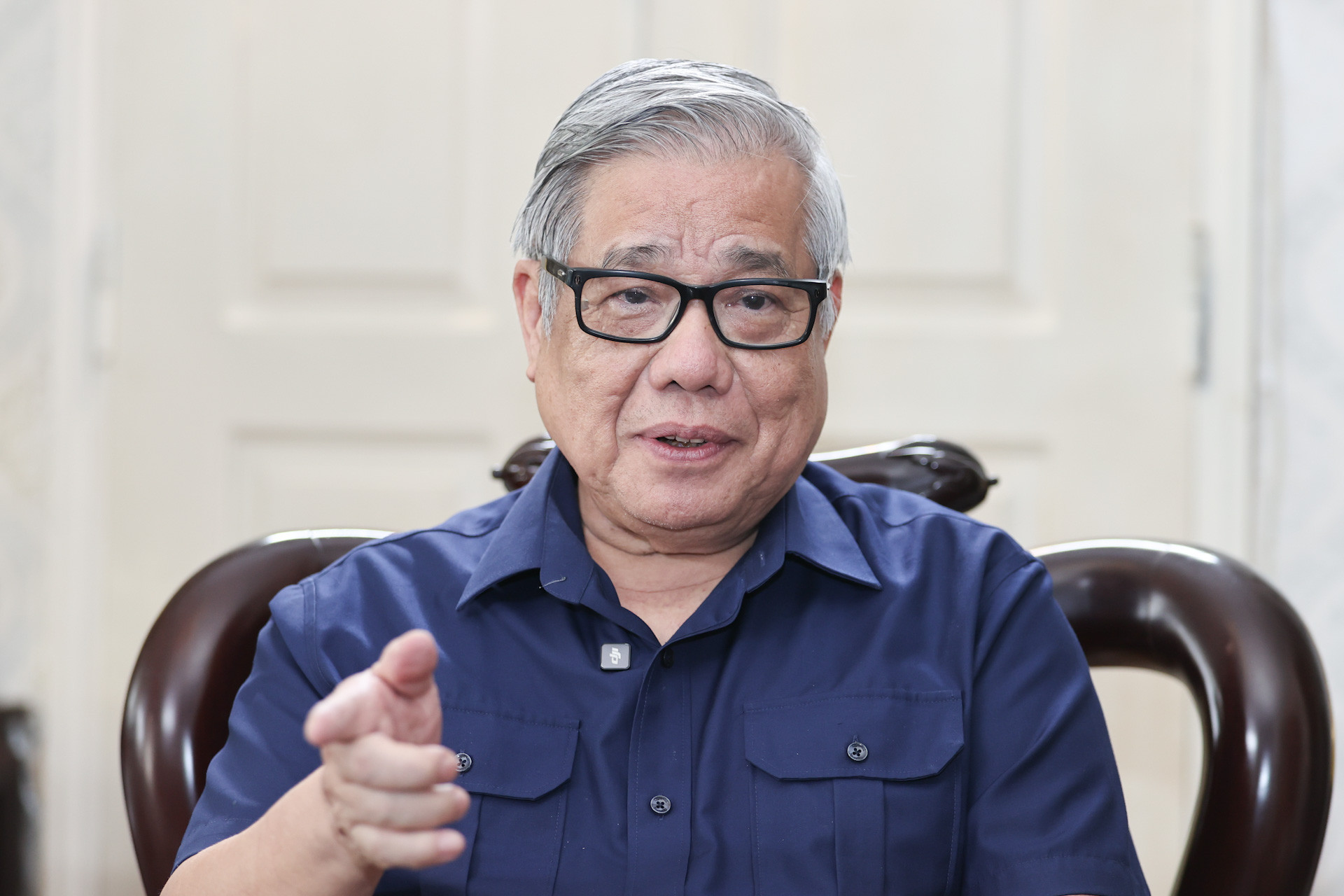
Professor Vu Minh Giang: The August Revolution established a republican government built on democracy, committed to bringing independence, freedom and happiness to the people. Photo: Le Anh Dung
The significance of the August Revolution is not only the great success of the cause of national liberation but also opens a new era for the development of the country. The Revolution established a republican government built on democracy, committed to bringing independence, freedom and happiness to the people.
The time of the revolution was not a “power vacuum”. The Viet Minh chose the most favorable time for the revolution to break out with the least loss of human resources, the least loss of forces, and yet with resounding success. That was the wisdom of the revolutionary leaders, choosing the right time, not earlier and not later, the art of seizing opportunities.
Professor Vu Minh Giang
At the Independence Declaration Ceremony held on September 2, 1945, on behalf of the Provisional Government, President Ho Chi Minh solemnly announced to the entire nation and the world the birth of the Democratic Republic of Vietnam. And immediately after that, a nationwide General Election was conducted to elect the National Assembly and pass the Constitution. Since then, we have had a constitutional and legal government according to international practice.
William S. Turley, a famous political science professor in the United States, in his book "Vietnamese Communism in Comparative Perspective" , stated: Among the ruling communist parties, the Communist Party of Vietnam is a ruling party whose constitutionality, legality, and legitimacy cannot be compared to any other party.
If the August Revolution was an event mobilizing forces to rise up and seize power, the declaration of independence on September 2, 1945 was a demonstration of force.
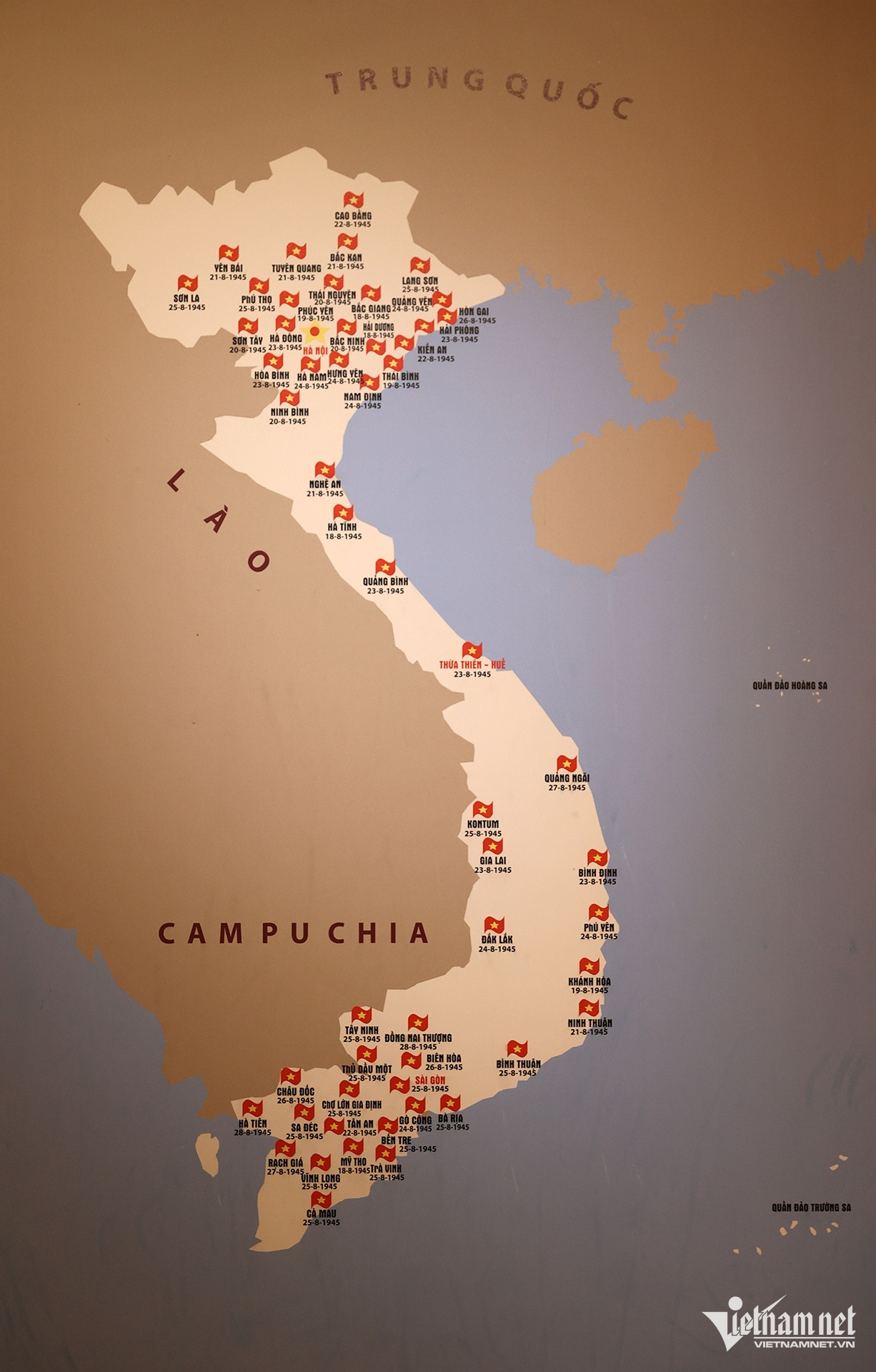
The August Revolution succeeded in provinces and cities across the country. Map: National History Museum. Photo: Le Anh Dung
NATIONAL INTERESTS MUST BE CONSIDERED ABOVE ALL
Dear Professor, the August Revolution opened a new era for the country - the era of independence. What core lessons did this revolution leave behind in the 80-year journey of building and developing the country?
There are some basic lessons that are still relevant today.
The first lesson is the lesson of preparing forces. The force of the August Revolution is first of all the leadership team, the core of which is the Viet Minh. Along with that is the mass force. Without the people, we cannot do anything. In the lesson of preparing forces, building armed forces with the motto "people first, guns later", taking propaganda first - like the name of the armed forces at the beginning, the Vietnam Propaganda Liberation Army.
The second is the lesson of “seizing the opportunity” . In 1944, when World War II was still raging, leader Ho Chi Minh predicted: The situation will come, within just a year or a year and a half, there will be a very important opportunity. We must start when the most favorable opportunity comes. The special feature of the August Revolution is the victory of the art of seizing the opportunity.
Third is the lesson of international mobilization . This is a great lesson and still holds true in the current extremely dynamic and unpredictable international context. To gain the support of the Allies and to rally all classes of people, the Party decided to establish the Vietnam Independence League (abbreviated as the Viet Minh Front).
At the National History Museum, there is still a historical document describing the assistance of Viet Minh to the US Air Force in the war against Japanese fascism. At that time, while on a mission, an American plane was shot down by the Japanese army at a location in Cao Bang province. Leader Ho Chi Minh himself ordered that the American pilot must be found, then protected, carefully cared for and brought back to Pac Bo.
Later, Lieutenant pilot William Shaw became the “bridge” for leader Ho Chi Minh to meet General Claire Chennault (1893 - 1958), Commander of the 14th Air Group, representing the Allied forces in the South China region (China). This meeting helped the Viet Minh connect forces, supporting the August General Uprising in 1945. The US sent a special task force to help us.
To receive aid, leader Ho Chi Minh also directed the construction of a field airport to strengthen cooperation between the Viet Minh Front and the Allies, creating favorable conditions for the Vietnamese revolutionary movement. Lung Co Airport in Tuyen Quang province was built and used until August 1945.
Because of that reality, in the Declaration of Independence, President Ho affirmed, “ …a nation that has courageously stood with the Allies against fascism for many years, that nation must be free! That nation must be independent!”
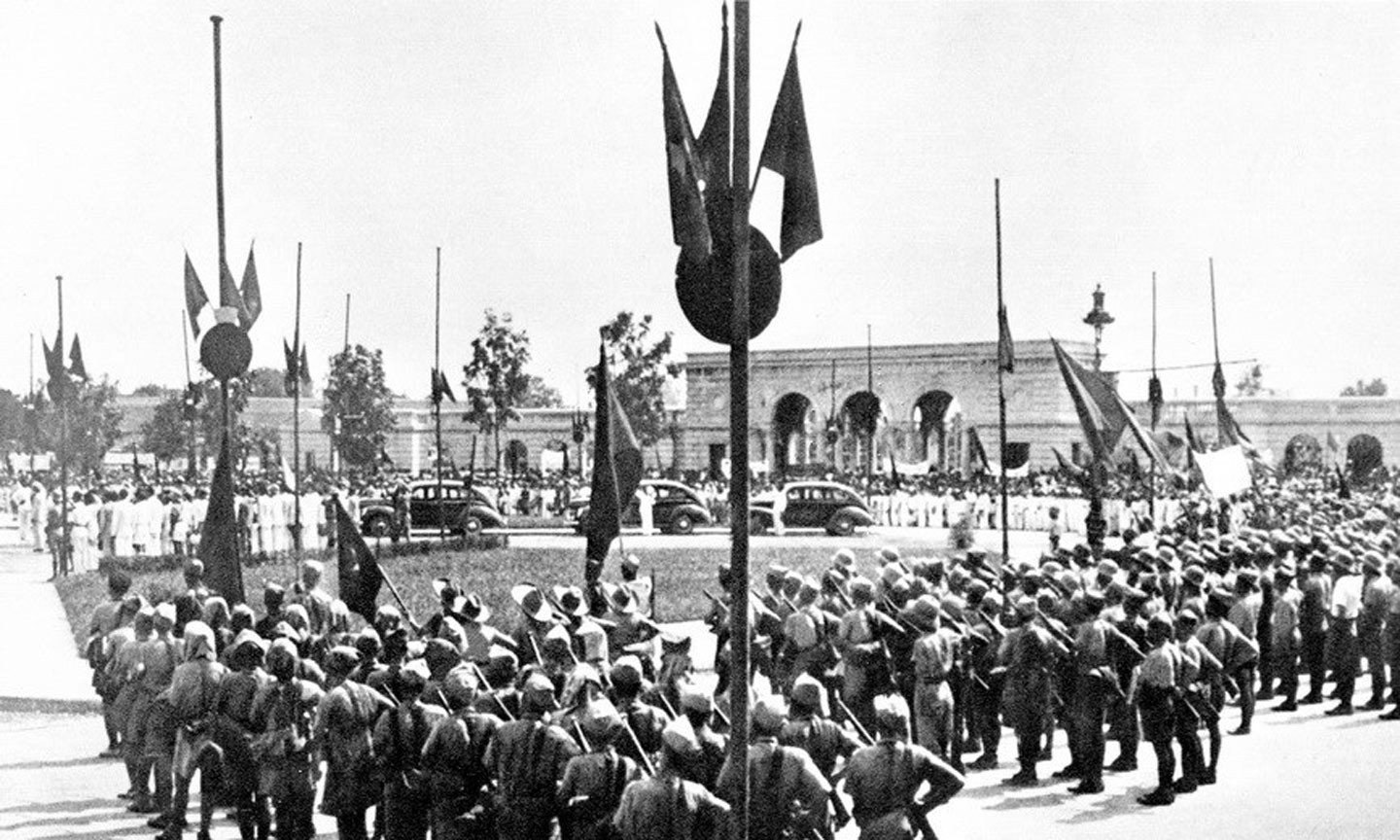
The motorcade carrying President Ho Chi Minh and delegates of the Provisional Government of the Democratic Republic of Vietnam to Ba Dinh Square on September 2, 1945. Photo source: VNA documents
Next is the lesson of protecting the young revolutionary government . Seizing power is difficult, maintaining power is even more difficult, especially when "internal and external enemies" surround us.
Ho Chi Minh handed over the presidency to Mr. Huynh Thuc Khang to go to France to conduct diplomacy for several months. At home, plots like the On Nhu Hau case to overthrow the government were foiled; we remained calm and did not fall into the enemy's plot to incite and use it as an excuse to destroy the revolutionary government.
The first lesson learned from the victory of the August Revolution is to promote the power of the people. The new government took over the entire business, but its finances were exhausted, and it had nothing in its hands but the trust of the people. It was the trust and love of the people that kept the government strong.
In the 80-year historical journey from the August Revolution to the present, two lessons have emerged: we must consider national interests above all else and have the support of the people. If we do not stand firm on our stance to protect national and ethnic interests, we may not be successful.
In the 80-year historical journey from the August Revolution to the present, Two lessons emerge throughout: we must consider national interests above all else and have the support of the people. If we do not stand firm in protecting national and ethnic interests, we may not be successful.
Professor Vu Minh Giang
It took a very long time for us to gain independence, but it took 30 years with many sacrifices and hardships for independence and unification to be complete in 1975.
Then, immediately we had to face all the difficulties of the post-war period, the consequences of the cold war, the hatred of the "hostile forces". We spent 10 years thinking we could not stand firm. Groups of people left the country, the country did not have enough to eat, and there was a deep economic and social crisis.
However, we have successfully carried out the revolution called Doi Moi, the result of which, as the late General Secretary Nguyen Phu Trong said, " our country has never had such a foundation, potential, position and international prestige as it does today."
RENEW YOUR THINKING, UNBREAK YOUR BAD WAY OF THINKING
After the August Revolution, our country was in a precarious situation. In an interview on the occasion of the 30th anniversary of Doi Moi – looking back at the period before the 6th National Party Congress, the Professor compared the country’s situation at that time to “precarious”. So what helped the country overcome those dire situations?
There have been many elaborate summaries of nearly 40 years of Renovation, but the focus is still on two core causes: Taking national and ethnic interests as the root and being supported by the people.
The historical lessons of the August Revolution remain valuable in this work.
We have been wondering which model to choose, but whichever model truly ensures the interests of the nation, we must follow.
We maintain a socialist orientation and apply the law of supply and demand very creatively. For a long time, we almost eliminated this core law of the market economy from economic and social life.
But, as President Ho once said, whatever is beneficial to the people must be done with all our might, whatever is harmful to the people must be avoided with all our might. Any cause or work that creates trust and has the support of the people will be successful.
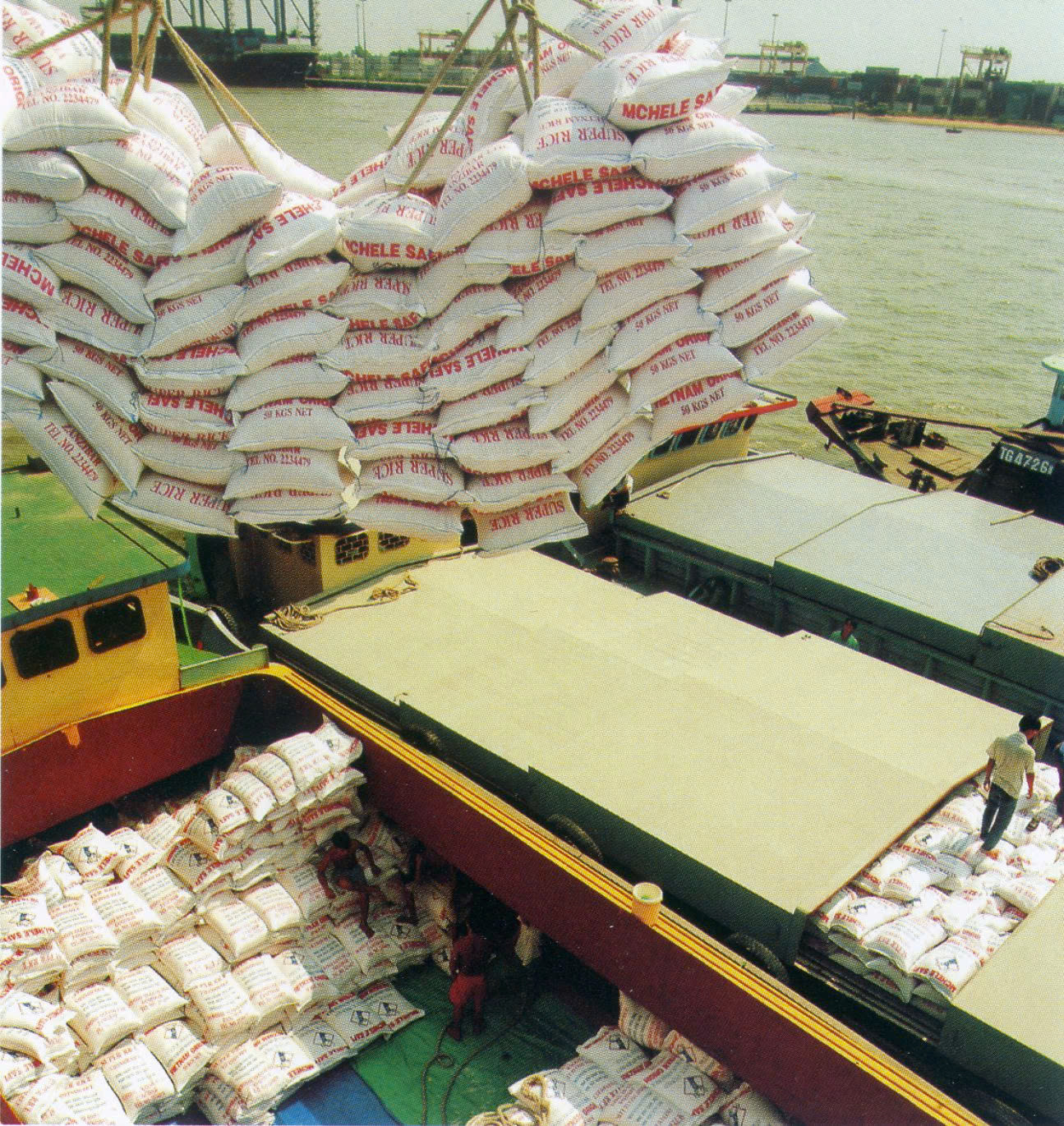
From a country with food shortages and having to import rice, after a decade, by 1989, Vietnam became the third largest rice exporter in the world. Photo source: Photo book 100 years of Vietnam Revolutionary Press, News Publishing House
Why did the people protect the “underground contracting” in Doan Xa (Do Son, Hai Phong) even though the leaders criticized and disciplined them? The truth lies not in dogma but in practice. The truth is concrete.
The "underground contracting" in Hai Phong was the basis for the State to launch the 100 contract policy in 1981 and the 10 contract policy in 1988. These marks show that when leaders know how to listen, "reflect" and adjust policies based on reality, they will be able to gather and promote the people's strength.
Leadership comes from the interests of the nation and people, makes people believe and support then success. Until today and tomorrow will be the same.
Professor, what is the most difficult thing in the Renovation process that we have overcome?
It is innovation in thinking, first of all economic thinking.
Let’s not generalize about progressive or conservative. With what our generation has experienced, when it comes to socialist economy, there are only two components: state-owned and collective economy, there is no private economy. The crisis has happened, people are hungry, the economy has hit rock bottom, and society is in dire straits.
There are opinions that we should create conditions for more private economic sectors to participate alongside state-owned and collective enterprises. The ideological struggle took place fiercely, and gradually the truth emerged. We accept a multi-sector commodity economy, in which the role of the private economy is included.
Then comes the question: Are Party members allowed to do business or not? Because the concept is that Party members are active masses who do not participate in exploitation, and private economy is given those two words.
There was a time when party members who wanted to participate in economic activities had to leave the Party.
There have been discussions about what constitutes exploitation, whether capital of 500 million or 1 billion is exploitation...
Finally, from vivid practice, we realize: Private economy not only creates added value, but is also a sign of dynamism, creativity, and contribution to society and the development of the country...
It was also a terrible ideological struggle before we accepted that party members could do business.
To have changes in thinking, we must also go through stumbles, mistakes from reality and the wisdom of leaders.
Another innovation in thinking is to remove the "us - the enemy" mindset.
During the Cold War, the thinking of these two factions was very clear, we only play with our own faction. But the world is vast, if we have factions in our minds, we cannot have the policy of "making friends with all countries". No one is a permanent enemy, only our national interests are permanent - that is also a transformational change in thinking.
THE COUNTRY'S LUCK IS COMING
From a country emerging from war and being surrounded by embargoes, how is Vietnam's image in the international arena today?
Previously, Vietnam had not yet escaped the defensive mindset, dealing with the outside world. When Eastern Europe collapsed, we were at times in a precarious position.
I used to go abroad during the period of blockade and embargo. It took two days to fly to Bali (Indonesia) for a meeting to the Soviet Union, then to Thailand, and then from Thailand to Indonesia. Now it only takes a few hours to fly there.
To put it bluntly, Vietnam's position at that time was very small. If anything, people only knew of a Vietnam that was good at fighting, daring to confront France and the US in the war.
But after nearly 40 years of Doi Moi, things are very different. I attended the Russian International Economic Forum held in Saint Petersburg in June this year, with more than 100 countries attending. I saw and felt very clearly that Vietnam's position is rising very strongly here.
Professor Vu Minh Giang: President Ho Chi Minh aroused the aspiration to build a powerful nation right after the August Revolution. With an unprecedented foundation, we are entering a new era to realize the aspiration to build a prosperous country to stand shoulder to shoulder with the world powers. Clip: Duc Yen
Vietnam now has enough strength, power and influence to participate in solving global regional issues.
Vietnam also has a rapidly growing national brand value over the past 10 years.
There is an organization that evaluates: The value of Vietnam's national brand is higher than the total GDP. It is a resource, a asset, not just a reputation.
A country on the rise with such international status, perhaps using the words that many people say now, is on the rise.
Dear professor, how do we welcome the "coming nation"?
I want to go back to the story of the August Revolution.
Few people pay attention to this. That is why, right after declaring independence on September 2, in a meeting of the provisional government, President Ho Chi Minh outlined urgent tasks, including eradicating illiteracy and immediately decided to establish the "Committee for the Eradication of Ignorance" - the Popular Education Department.
As a person with a vision that spans centuries, President Ho Chi Minh realized: The independence lost by the Nguyen Dynasty at the end of the 19th century and the independence we regained in 1945 are not the same.
The independence that was lost in the late 19th century was an independence that was "closed, proud, and looked down on the world" - as Nguyen Truong To said.
The independence that Vietnam had after the August Revolution had to face global relations. At that time, colonialism was present everywhere. If you want light under the sun, you have to rise up to have a position on the world map, the country has to become powerful.
Organizing Mass Education was something that no government that gained independence at that time did, only Uncle Ho, because he realized that " an ignorant nation is a weak nation ". And weakness is cowardice.
But just lift Even if the whole population could read, it still wouldn't be able to do anything great.
The fact that the entire population could read and write and that the people’s knowledge had been raised was already a revolutionary change. But that alone was not enough to build a strong country. Along with raising the people’s knowledge , we must revive the people’s spirit , and convey to the entire population a sacred message about the aspiration to rise up under the sun, to become a strong nation, a prosperous people. That is why, in September of that year, in a letter to students on the opening day of school, Ho Chi Minh wrote:
"Whether Vietnam's mountains and rivers become beautiful or not, whether the Vietnamese people can step up to the stage of glory to stand shoulder to shoulder with the great powers of the five continents or not, depends largely on your studies."
Standing shoulder to shoulder with the world powers is the aspiration of the entire nation.
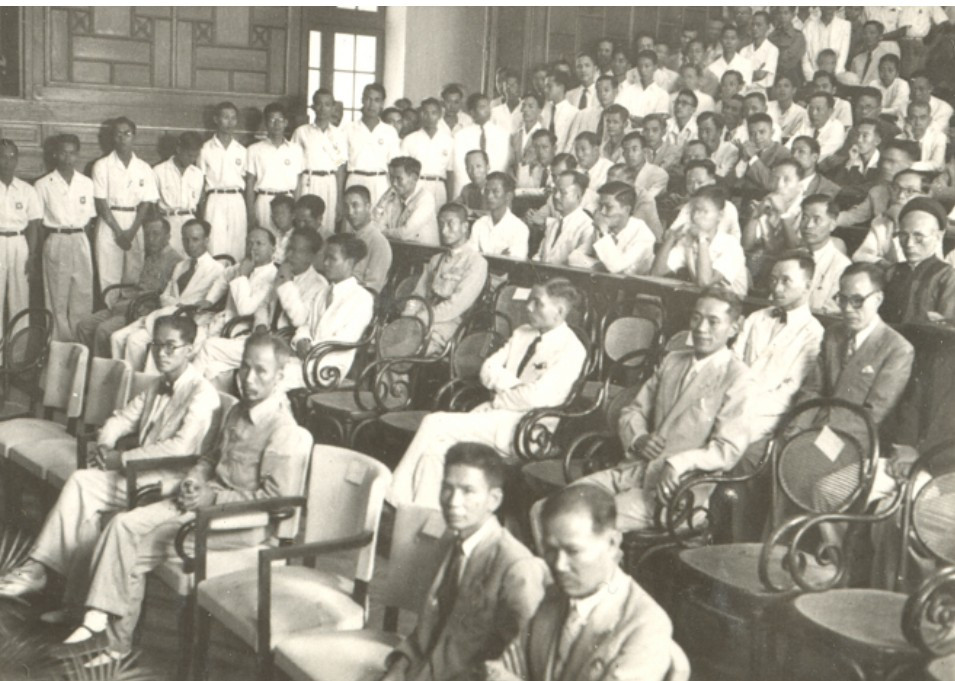
President Ho Chi Minh attended the first opening ceremony of the Vietnam National University (formerly the Indochina University) on November 15, 1945. The ceremony took place at the lecture hall at 19 Le Thanh Tong, Hanoi. This was an important event marking the birth of a multidisciplinary, multi-field university under the Democratic Republic of Vietnam regime. Photo: Document/According to Sports - Culture, VNA
In the situation of being surrounded by enemies and busy with a thousand things, on November 15, 1945, President Ho still took the time to preside over the opening ceremony and directly award degrees to graduates of the French Indochina University, one of the leading centers for training talents in Asia in the early 20th century (after the revolution, it was changed to Vietnam National University). This was the message of valuing talents from the revolutionary government headed by President Ho. To reach the top, to become a powerful country, it is necessary to raise the people's knowledge, revive the people's spirit, and value talents . That great thought was clearly demonstrated in the months after the August Revolution.
The simple wish of living in peace, with everyone having food and clothing, is not enough to preserve Independence, but must rise to become a powerful nation.
But to realize that aspiration, it will take us 80 years.
We must fight against the French and the Americans; we must overcome difficulties and innovate.
Today is the time to realize the wish of "standing shoulder to shoulder with the great powers" - beginning the era of national growth.
The aspiration to become a powerful nation began with Ho Chi Minh, after the August Revolution.
Regarding people's knowledge, if the Government previously launched Universal Education, now it is Universal Digital Education, meaning that people must have knowledge about technology and digital transformation. This is a step at the high level of Universal Literacy.
Regarding national spirit , it is the aspiration to be strong and prosperous.
Regarding talent - as I observe - the current leaders are listening to the opinions of experts and gradually have policies to attract intellectual resources from within and outside the country. Even leaders in the government apparatus are well trained.
The professor often mentioned the power of the people's hearts. In the poem "Country" in the epic poem "The Road of Desire" that many generations of Vietnamese people studied in school, poet Nguyen Khoa Diem wrote the following verses:
"Must know how to share and bond"
Must know how to transform into the shape of the country
Make the Country forever...
Let this Country be the People's Country".
As a historian, what message do you want to convey to the generations about the spirit of "knowing how to transform the country's shape...so that this Country is the Country of the People" in the current context?
I would like to mention three historical figures.
The first is Hung Dao Vuong Tran Quoc Tuan - who made great contributions in the resistance war against the Mongol invaders.
After defeating an empire, the most powerful army in the world in the 13th century, when asked "After the victory, what is the next strategy to defend the country?" , Tran Quoc Tuan said: "We defeated the enemy because the people were of one mind, brothers were in harmony, and the whole country contributed its strength" . The strength of unity among all people is something that is engraved in the bones of generations.
History also shows how dangerous it is for this nation to lose solidarity and the people's trust. That is the lesson of Ho Quy Ly.
No one doubted his patriotism as well as the level and force in his hands. The citadel was the most fortified in medieval history, the army was large, and the weapons were strong. History recorded a dialogue between him and his son, Ho Nguyen Trung. Ho Quy Ly wished to have a strong army to fight the enemy, and Ho Nguyen Trung leisurely replied: " Your Majesty, I am not afraid of fighting, I am only afraid that the people will not follow ." After holding out for less than a year but not winning the people's hearts, Ho Quy Ly let the country fall into the hands of the Ming invaders.
Poet Nguyen Khoa Diem talks about the people to convey that the people are not just the majority, but the people are also the spirit of solidarity, of unity from top to bottom.
The second historical figure is Nguyen Trai in the 15th century.
The Le Dynasty had the great merit of regaining independence after the Lam Son Uprising, in which Nguyen Trai was the supreme advisor. The victory of this uprising was not only to seize power, but also to save a culture from being destroyed.
Nguyen Trai - a world cultural celebrity - once said: "Think of a plan to make the country last forever/ Forgive one hundred thousand surrendering soldiers/ Restore peace between the two countries/ End war forever ". The most important thing is not to win the war but to end war forever.
The Vietnamese people have a tradition of loving peace, this nation must find every way to preserve peace. That peace is preserved on the basis of preserving the interests of the nation.
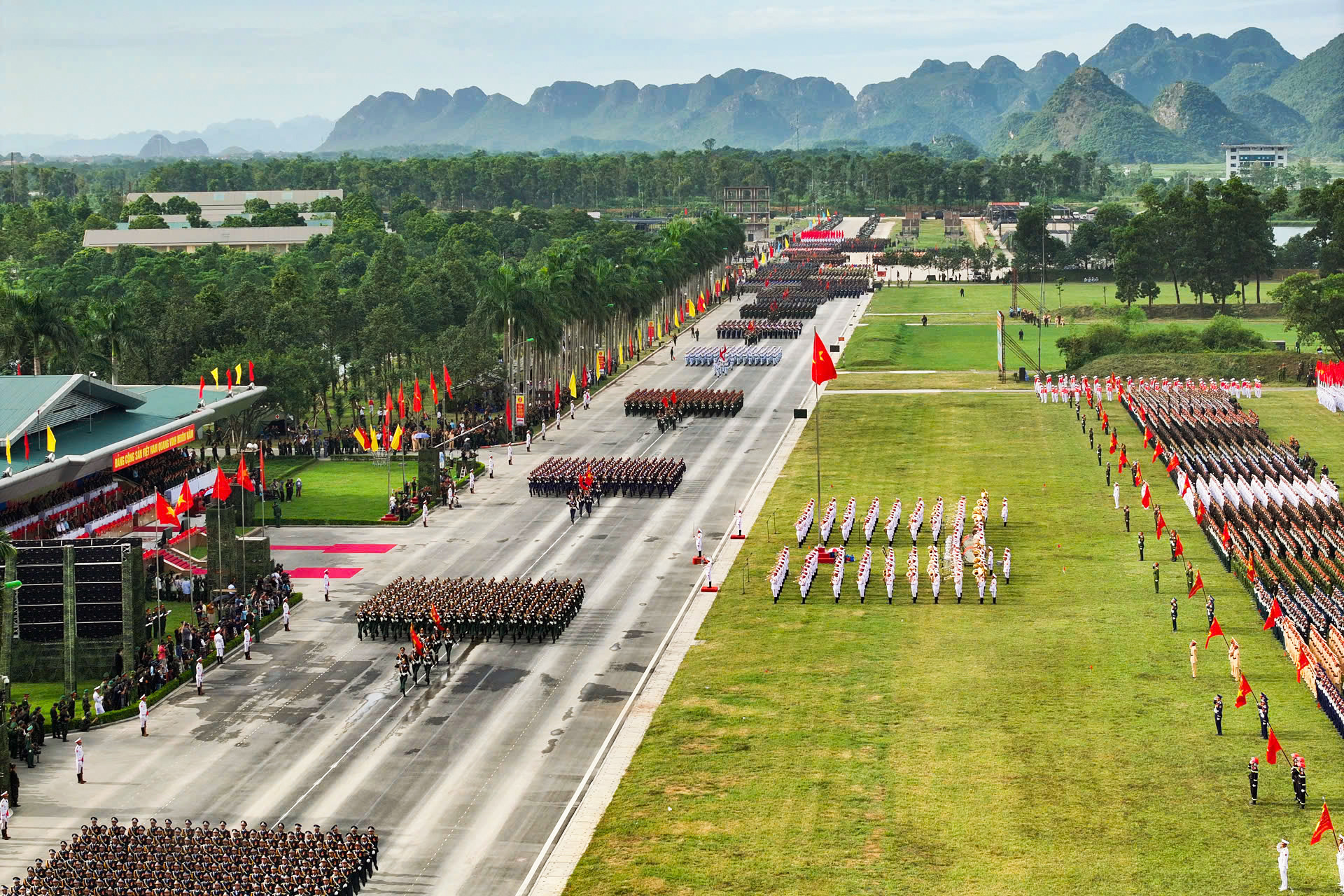
Parade and marching units of the Army and Police participated in the second general training at the National Military Training Center 4 (Hanoi), preparing for the celebration of the 80th anniversary of the August Revolution and National Day September 2. Photo: Tuan Huy
The third character is Ho Chi Minh in the 20th century.
President Ho Chi Minh is the embodiment of Vietnamese culture, a national hero and a great cultural figure. He is the great leader of the struggle for national liberation, not only of Vietnam but of humanity, from which he put forth the immortal truth “ nothing is more precious than independence and freedom ”. In the depths of his thoughts, the people are supreme.
He once said, " A tree must have a strong root to last; building a tower of victory on the people's foundation ."
Although a staunch soldier, President Ho is a symbol of peace and humanity. According to him, peace is the benefit of all nations, so we must fight for lasting peace in the world, preserving world peace means preserving the interests of our country. Because the interests of working people around the world are unanimous and preserving peace is not just about being humble, but must rise up to become a great power. That idea is the greatest to date.
It was he who aroused the aspiration to build a strong nation right after the August Revolution.
With an unprecedented foundation, we are entering a new era to realize the aspiration of building a prosperous country to stand shoulder to shoulder with the world powers.
Vietnamnet.vn
Source: https://vietnamnet.vn/cach-mang-thang-tam-neu-khong-co-nhan-dan-chung-ta-khong-lam-duoc-gi-ca-2429906.html






![[Photo] Prime Minister Pham Minh Chinh chairs meeting to deploy overcoming consequences of storm No. 10](https://vphoto.vietnam.vn/thumb/1200x675/vietnam/resource/IMAGE/2025/10/3/544f420dcc844463898fcbef46247d16)
![[Photo] Students of Binh Minh Primary School enjoy the full moon festival, receiving the joys of childhood](https://vphoto.vietnam.vn/thumb/1200x675/vietnam/resource/IMAGE/2025/10/3/8cf8abef22fe4471be400a818912cb85)
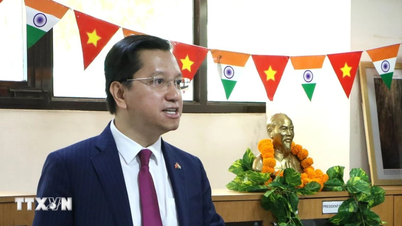




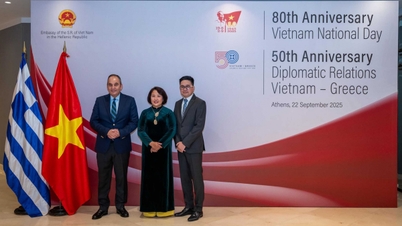

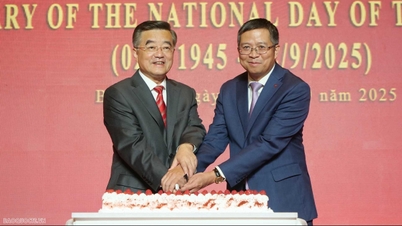


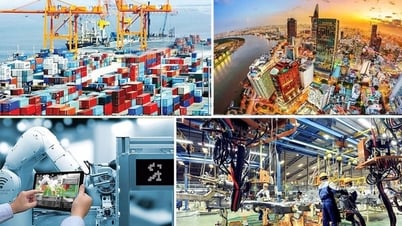

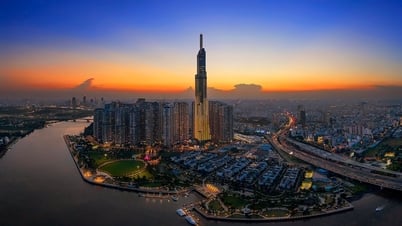

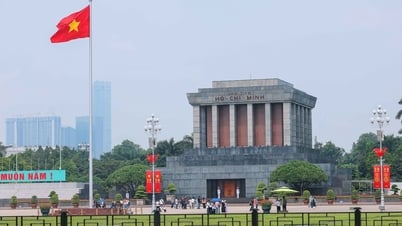
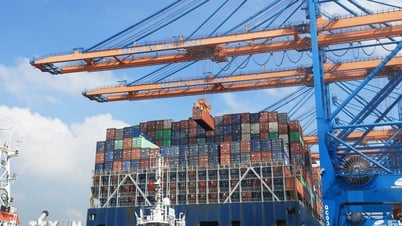




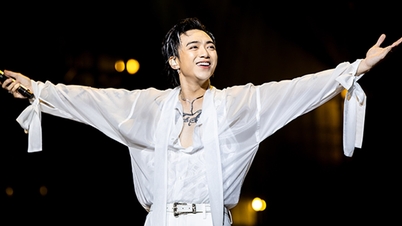
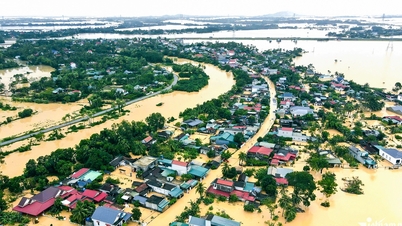
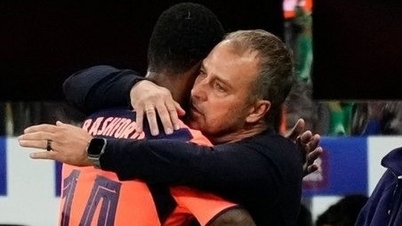
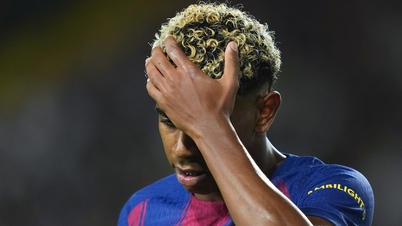
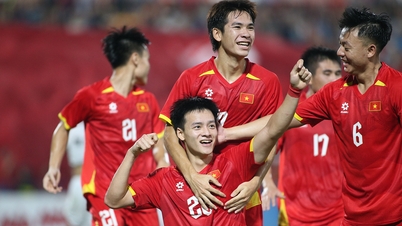




















































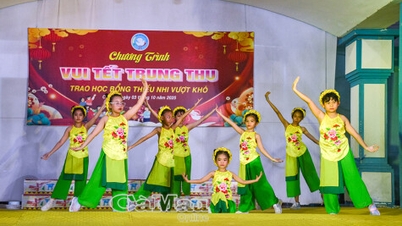

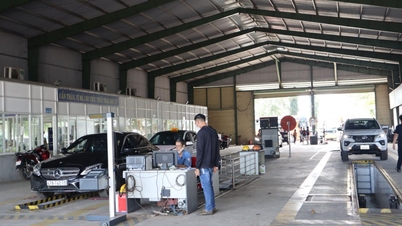

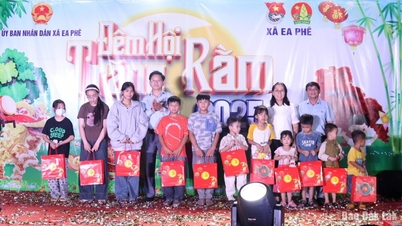
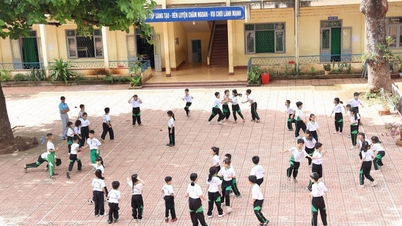
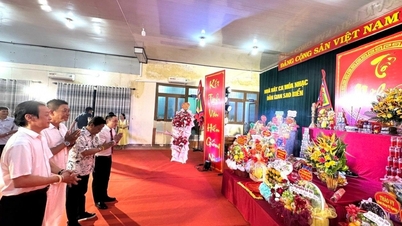












Comment (0)